Meet the Directors
Ryan Skinner, Director of the Humanities Centers Consortium and Humanities Collaboratory
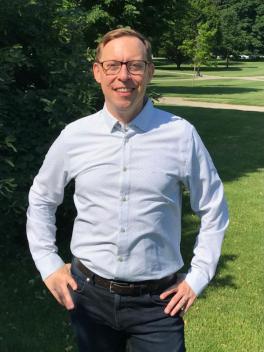
Ryan Skinner is a musical anthropologist who studies the expressive cultures and social worlds of contemporary Africa and its European diaspora, with extensive fieldwork conducted in Mali and Sweden. Specializing in the analytic and interpretive methods of cultural anthropology and ethnomusicology, Skinner’s research focuses on issues of popular culture, ethics and aesthetics, public piety, cultural policy, intellectual property, racial identity and politics, and new social movements in the African world. Skinner’s scholarship and criticism has appeared in such journals as Scandinavian Studies, African and Black Diaspora, Africa Today, Research in African Literatures, Anthropological Quarterly, Africa, IASPM@Journal, Popular Music, and Mande Studies. He is also a contributor to the popular African Studies website, Africa is a Country. Skinner is the author of Bamako Sounds: The Afropolitan Ethics of Malian Music (University of Minnesota Press, 2015), an ethnographic and historical study of popular music in Mali (West Africa). Bamako Sounds center the music and musicians of Bamako, Mali’s booming capital city, to reveal a community of artists whose lives and works evince a complex “Afropolitan” world shaped by urban culture, post-colonialism, musical expression, religious identity, and intellectual property.
Alongside his scholarship, Skinner is the author and illustrator of an award-winning children's book, Sidikiba's Kora Lesson (Beaver's Pond Press, 2008). Skinner is also an accomplished kora (21-stringed West African harp) player and an aspiring rock drummer.
At Ohio State, Skinner is Area Head of Music Theory and Musicology in the School of Music. He holds faculty affiliations with the Departments of French and Italian and Germanic Languages and Literatures.
In July 2025, Skinner begins a four-year term as Director of the Humanities Institute.
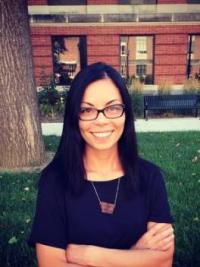
Namiko Kunimoto, Director, Center for Ethnic Studies
Namiko Kunimoto is Associate Professor of History of Art and a specialist in Asian American studies as well as modern and contemporary Japanese art. Her research interests include the visual politics of race and gender, art and diaspora, and issues of migration and nation-formation. Her essays include “Intimate Archives: Japanese-Canadian Family Photography, 1939-1945” in Art History, “Olympic Dissent: Art, Politics, and the Tokyo Games” in Asia Pacific Japan Focus, “Photographic Pluralities” in Blackflash Magazine, and “Tactics and Strategies: Chen Qiulin and the Production of Space” in Art Journal.
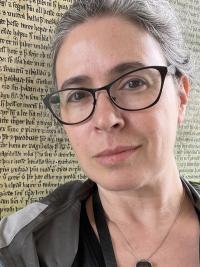
Merrill Kaplan, Director, Center for Folklore Studies
Merrill Kaplan is is the Director of the Center of Folklore Studies and Associate Professor of Folklore and Scandinavian Studies in the Departments of English and Germanic Languages and Literatures. Kaplan specializes in Old Norse-Icelandic myth and literature, supernatural legend and folk belief, and the places these categories intersect. She has recently published article on irruptions of the past and the supernatural in Icelandic sagas; Out-Thoring Thor in the Great Saga of Olaf Tryggvason; Ibsen's Dramatic Realism and the publication of folklore collections; The Icelandic reception of Ibsen's The Vikings at Helgeland.
Isaac Weiner, Director, Center for the Study of Religion
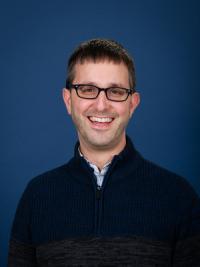
Isaac Weiner became the Director of Center for the Study of Religion in Autumn 2022. He joined the department in Autumn 2013 as an assistant professor in religious studies. His research considers the implications of religious diversity for American public life, focusing especially on the concrete challenges that have arisen when communities have encountered each other in public spaces and how American law has mediated and shaped those encounters. He brings a multidisciplinary approach to considering these questions, with training in American religious history, legal and political theory, sensory and material culture, and theory and method in the study of religion. His first book, Religion Out Loud: Religious Sound, Public Space, and American Pluralism (NYU Press, 2014), analyzes the politics of religious pluralism in the United States by attending to disputes about religious sound in the public realm. He also has published articles on secularism, cultural memory, and sensory history. He teaches a variety of classes on religion and American culture.
Hannah Kosstrin, Director, Melton Center for Jewish Studies
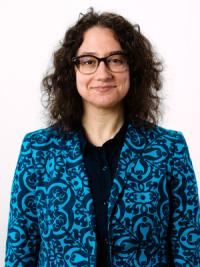
Hannah Kosstrin is a dance historian and movement analyst. Her scholarship focuses on Jewish and Israeli dance in global contexts. Her research and teaching interests include dance histories of the United States, Israel and the Jewish diaspora, Latin America, Europe, South Asia, and the African diaspora; gender and queer theory; nationalism, migration, and diaspora studies; Laban movement notation and analysis; and digital humanities. In the Department of Dance, she is Associate Professor and Director of Graduate Studies (Graduate Studies Committee Chair).
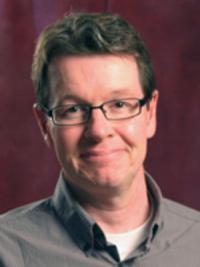
Chris Highley, Director, Center for Medieval and Renaissance Studies
Chris Highley is professor in the Department of English and specializes in Early Modern literature, culture and history. He is the author of several books: Shakespeare, Spenser, and the Crisis in Ireland (Cambridge University Press, 1997), Catholics Writing the Nation in Early Modern Britain and Ireland (Oxford University Press, 2008) and is the co-editor of Henry VIII and his Afterlives (Cambridge University Press, 2009). Highley is currently working on two unrelated projects: the posthumous image of Henry VIII and the history of the Blackfriars neighborhood in early modern London.
